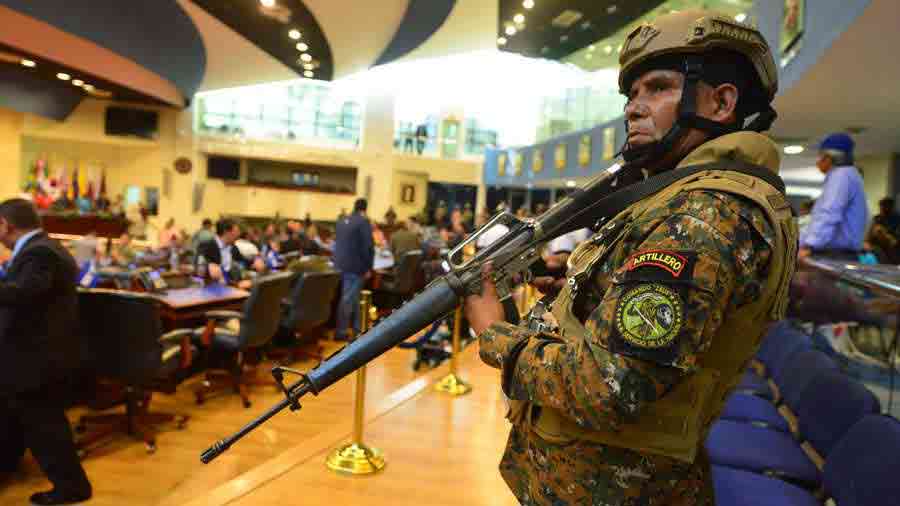
Listed as a “flawed democracy,” The Economist notes that El Salvador fell from 6.15 to 5.9 in 77th place out of a list of 167 countries. It is the only country in Latin America that has been demoted from one regime to another.
The fragility of democracy in El Salvador is under global scrutiny. Recently, the report of the Democracy Index of the Economist Intelligence Unit exposed the worrying situation.
The document details that El Salvador had a notorious inclination towards authoritarianism in 2020. In a section entitled “Authoritarianism in El Salvador: a budding dictator?” draws attention to the fact that the President, Nayib Bukele, seems to ignore the ignorance and balances of his government, when in April 2020 he did not respect the decisions of the Constitutional Chamber of the Supreme Court of Justice, which demanded respect for fundamental rights in quarantine arrests.
READ ALSO: Javier Simán: “Bukele should be the first to set an example of tolerance and respect”
The Economist report also notes that he “surrounded the Legislature with the military and police to put pressure on the legislature to approve a $ 100 million loan.”
Listed as a “flawed democracy,” The Economist notes that El Salvador fell from 6.15 to 5.9 in 77th place out of a list of 167 countries. It is the only country in Latin America that has been demoted from one regime to another.
Freedoms will be withdrawn in 2020 due to pandemic measures
The overall score for the Democracy Index fell from 5.44 in 2019 to 5.37 in 2020, on a scale of 0 to 10. This is the worst score since 2006, when the Democracy Index was assessed. In Latin America, the index fell for the fifth consecutive year from 6.13 to 6.09.
Democratic freedoms have fallen in nearly 70 percent of the world’s countries in 2020 due to restrictions caused by the fight against the pandemic, according to a study by the British group The Economist published on Wednesday.
CONTINUE READING: “I would have liked the President (Bukele) to buy from Salvadoran producers,” says President Conamype
“The coronavirus pandemic provoked a huge revolt of democratic freedoms, which brought the average score of the index to historical lows,” according to this study published by the research unit of the British weekly.
The phenomenon is global and very pronounced in autocratic regimes in Africa or the Middle East, but “the suppression of individual freedoms in advanced democracies has been the most striking in 2020,” he said.
“The voluntary abandonment of fundamental freedoms by millions of people was probably one of the most notorious events of this extraordinary year (…), but we cannot conclude that the high level of acceptance of isolation measures means that people devalue freedom.” said Joan Hoey, head of the study.
“They simply judged, on the basis of the evidence …, that avoiding catastrophic deaths justified a temporary loss of liberty,” he said.
Over 8, countries are considered “full-fledged democracies”. This category includes the top 23 countries. The best is Norway with an index of 9.81, but there is also Switzerland or Canada. France, on the other hand, is in 24th place.
The research unit of the British group The Economist calculates the democracy index every year. It is calculated on a basis 10 according to 60 criteria, grouped into five categories: electoral process and pluralism, civil liberties, government functioning, political participation and political culture.
The overall result is 5.37, “the worst global average since the index was created in 2006.” The largest decrease was recorded by Mali, and Taiwan was the one that increased the most.
The weakest country in 2020 is North Korea, with a democracy index of 1.08, ranked among the “authoritarian regimes”.